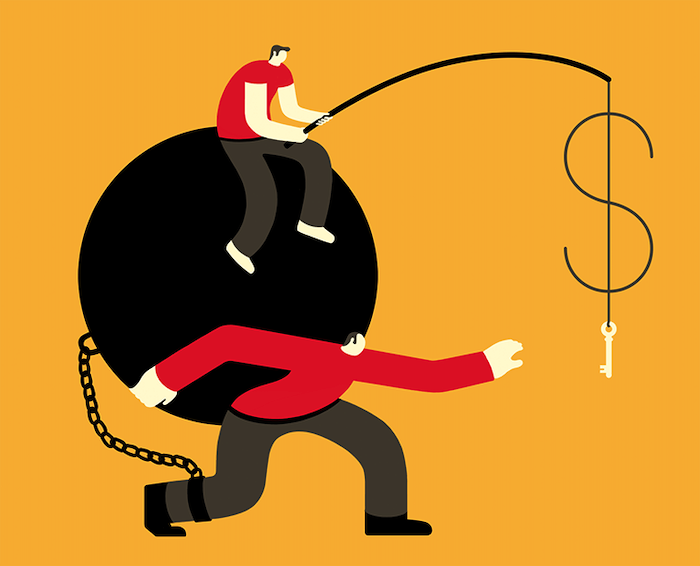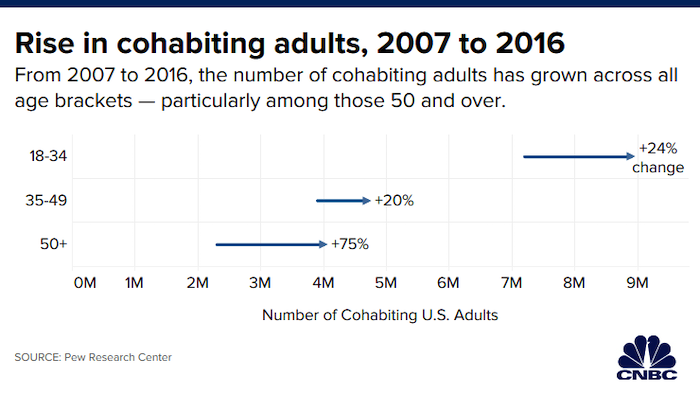How to make crucial financial and health care decisions for you and your loved ones.

Surely you’ve heard it’s a good idea to have a will, just in case anything should happen. Yet we tend to put off completing the paperwork — the documents are confusing and it can be distressing to think about our own mortality. A 2017 study found that only about a third of Americans have completed the necessary end-of-life forms.
The Covid-19 pandemic now has many scrambling to figure out how to get wishes into writing. The coronavirus has reminded us that mortality is unpredictable and so it’s a good time to get our medical and financial matters in order.
The benefits to doing so are many: peace of mind knowing that you will get the medical treatment you want; that your possessions and assets, many or few, will be given to those you choose; that you are protecting your family and friends from having to guess what you would want; and preventing the squabbles that could erupt from family disagreements.
But how to complete the necessary paperwork while in social isolation? In some ways, self-isolation provides the perfect opportunity to get your documents together, but finalizing them can be difficult when a notary and witnesses can’t be in the same room with you.
Signing off, online
On March 20, Gov. Andrew Cuomo made New York one of the more than 20 US states to allow remote online notarization of documents — providing a solution to the challenge of self-isolation. It is a temporary law, and no one knows what it will mean once the pandemic has subsided. New York state also requires two witnesses (laws vary by state) to sign some of these documents, a problem that the temporary notarization law does not explicitly address.
Peter Strauss, a senior partner at Pierro, Connor & Strauss and a founding member of the National Academy of Elder Law Attorneys, has instituted a protocol that he and his firm believe will accommodate remote witnesses. Using a video chat program like Zoom, GoToMeeting, or FaceTime, witnesses show their ID and are recorded signing the document by the notary public. Still, Strauss recommends revisiting all documents once your state has safely reopened and completing them in person.
Fern Finkel, a Brooklyn elder care lawyer, said she was concerned that the online notarization process, depending on how the witnesses are involved, could leave documents open to contest. She, too, advised that any documents completed now with online notarization be revisited in the future.
But she and other experts said it is still very important to take steps now to account for medical and financial contingencies should you become ill. “The pandemic is a reason to act, not to delay necessary planning,” Strauss said.
As far as medical contingencies go, “it is really important for doctors to always be guided by the voice and values of the patient,” said Dr. VJ Periyakoil, associate professor of medicine at Stanford and director of the Stanford Palliative Care Education & Training Program. To preserve patients’ voices, Periyakoil and her team have worked with patients to create “The Letter Project,” free and simple forms that help patients communicate their wishes to their family and doctors.
The letters, which are not state-specific and come in eight languages, provide a structured way for each person to think through these important, timely, and emotionally charged issues. They can be printed, filled out, and attached to any state’s forms, also available online. “Our goal is to democratize health care,” Dr. Periyakoil told me, “If people have to choose between groceries or advance directives, groceries are always going to win.”
To get yourself and your loved ones (legally) prepared, here are eight important steps to take.
What you should be doing right now
1. Organize. “The first thing you have to do is understand what you have,” Finkel said. Pull out all your existing documents and organize them in one place. Do you have a health care proxy (designation of a person to make your medical decisions when you can’t), a HIPAA authorization (designation of a person to access your doctor and medical information), a living will (statement of what medical treatments you want in various situations), an intent to return home, a power of attorney, a trust, and/or a last will and testament (statement of how you would like your assets distributed)?
Collect these items in one place in your home — a desk drawer, say, or a file box. (If your documents are somewhere else in a safe deposit box, leave them there — just make sure your family members know where they are.)
Once you’ve done an audit of these documents, you can arrange an online consultation with a knowledgeable attorney to help guide you through what needs to be done. (Justia provides a list of elder law lawyers, for example, or ask your friends for a recommendation.)
To this file, add other essentials that your family members might need should you be incapacitated: checkbooks, insurance policies, safe deposit box keys, Social Security card, passport, birth certificate, and other identification, mortgage, deed or lease for your home, and vehicle titles.
2. Beneficiary designations. During this crisis (or at any time), it is advisable to designate beneficiaries on all of your accounts. Take a look at bank accounts, retirement accounts, and investment accounts to see if they have a beneficiary designation.
“People don’t understand that how accounts are titled is supreme to what’s in a will,” Finkel said. For instance, if your will divides your assets equally among your three children but your oldest daughter is the beneficiary on a bank account, she will receive the accounts’ balance upon your death.
Which means that much of your property designation can actually be done remotely by requesting the appropriate form from your bank or financial adviser and returning it by mail. “If these forms need to be notarized, you can do so remotely,” Finkel said.
3. Health care proxy. If you are in isolation with others you may be able to fill out a health care proxy. The document — which varies by state — often requires two witnesses, like your home health aide and your best friend (neither can be your assigned agent). The proxy allows you to appoint an agent who will make your medical decisions should you become incapacitated. You do not need a lawyer or a notary to complete this form. (AARP provides links to these forms for every state.)
4. HIPAA. Everyone should complete a HIPAA form. “If you can’t get two witnesses [for a health care proxy] because you’re self-isolated,” Finkel says, “you can still do a simple authorization [the HIPAA form] to let your close people be able to speak to doctors.”
At a time when visitors are not allowed in hospitals or nursing homes, the HIPAA — an acronym for the law that protects patient privacy, Health Insurance Portability and Accountability Act — will allow your designated loved ones to talk to your doctors about your status. Also, Finkel says, you can name as many designees as you want, just fill out the form with their names and contact information
Once you have completed a health care proxy and/or a HIPAA form, take a photo of them and share it with your designee. “I have HIPAA authorizations for my dad and my husband on my phone,” Finkel told me. They’re at her fingertips should she need them in an emergency. (You can access the HIPAA form here.)
5. Financial institution power of attorney. You can also complete a basic power of attorney form with your bank that designates a person to make financial transactions in those corresponding accounts. You can request the form and, if the institution allows, notarize it remotely. Some banks may have their own procedure, so check with them first.
“Do whatever you can right now to set up a designee for each of the banks you use,” Finkel recommended.
6. Direct deposit and direct pay. Now that you’re at home, it’s the perfect time to put all your bills and monthly payments online. Have your income deposited into one account and your regular bills auto paid from the same account. Heat, electric, gas, cell phone, cable, wireless, water — and your monthly rent or maintenance fee if possible.
“Get everything online, electronically paid, so that all of these things are seamless,” Finkel told me. Should you have to be hospitalized (hospital stays for severe cases of Covid-19 last an average of 10-13 days, with some lasting much longer), when you come home all of your services will be in place.
7. Passwords. While you’re setting up your bills for auto pay, organize all your online passwords. Once you’ve recorded the username and password for all of your utilities, do the same for your online accounts like email, social media, entertainment services, and other online platforms. Share this document with your most trusted person so that they’ll have it in your absence.
8. Have the conversation. This is also the time to talk to your loved ones about your health care and financial decisions. This difficult time might actually make the conversation easier for you and your family. “People around me are dying,” Finkel said. “We’re in a pandemic, and everyone is starting to see their own mortality. Let your loved ones know your wishes.” Tell the people you love where your documents are, and give your health care proxy, power of attorney, and HIPAA to your trusted agents named within them.
And there is one more important thing: “We can take this time to talk to our loved ones,” Periyakoil told me. “If there is one thing even more important than advanced directives, it’s really telling our friends and family how much we love them.”
Complete Article ↪HERE↩!









